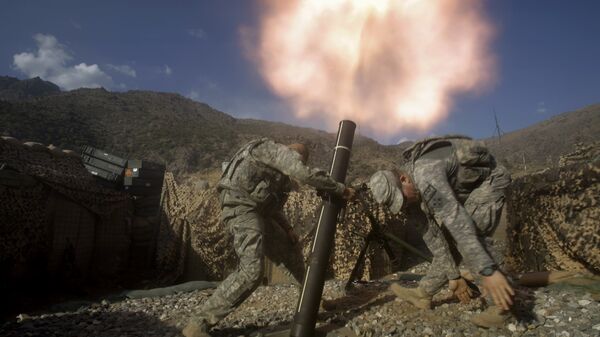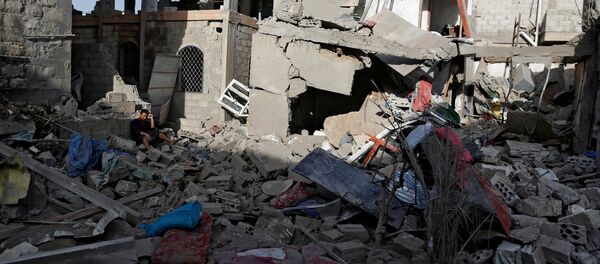US President Donald Trump has fulfilled his pledge to relax the rules of engagement in Afghanistan, leaving the US military free to open fire on the Taliban without its troops being in direct contact with enemy combatants.
Speaking to the Senate Armed Services Committee, Defense Secretary Jim Mattis announced the move to "lift restrictions and expand authorities" on and of US operations in the embattled central Asian nation, following a policy originally mooted by Trump in August.
Mattis reveals new rules of engagement in #Afghanistan https://t.co/T82aXc4L1R
— Frances Townsend (@FranTownsend) October 3, 2017
On top of removing proximity requirements for strikes against the Taliban, US advisers will also be posted to lower-level Afghan units.
"We will also expand authorities for American armed forces to target the terrorists and criminal networks that sow violence and chaos throughout Afghanistan," Trump said at the time.
"You see some of the results of releasing our military from, for example, a proximity requirement — how close was the enemy to the Afghan or the US-advised Special Forces. That is no longer the case — these kind of restrictions that didn't allow us to employ the airpower fully have been removed," Mattis told the Committee.
Relax, Civilians
It is not the first time the Trump administration has relaxed the rules of engagement in one of the US' many theaters of combat.
In March, it was announced officials were exploring how to dismantle and/or bypass Obama-era constraints on drone attacks, commando raids and other counterterrorism missions. In a "test run" of that policy, rules for carrying out counterterrorism strikes in Somalia were eased, giving commanders of the US Africa Command greater latitude to carry out offensive airstrikes and ground troop raids against local Islamist group Shabab.
Moreover, Trump granted a Pentagon request to declare parts of three provinces of Yemen to be an "area of active hostilities" where looser battlefield rules applied, opening the door to Special Operations raids in which many civilians were killed, as well as the largest-ever series of American airstrikes in Yemen.
While the changes were alleged to offer "more flexibility and more timeliness," allowing US forces to engage targets in a "more rapid fashion," critics suggested the changes increased the risk US forces could kill civilians in the region, given the jettisoned rules were specifically designed to minimize civilian casualties.
Nonetheless, officials have denied loosening rules of engagement in Iraq and Syria, despite US airstrikes potentially playing a role in scores of civilian deaths — particularly in the US-led coalition campaign to liberate Mosul. As of July, over 40,000 civilians had reportedly perished as a result of the operation, despite the US' use of high-precision weapons.
Silent Witness
The US' seemingly relaxed approach to civilian casualties has been repeatedly condemned by rights groups. Most recently, in September Human Rights Watch said the country's unspoken opposition to an independent probe of civilian casualties in Yemen was a key obstacle to a proposed international investigation of war crimes committed in the conflict by the Saudi-led coalition.
The US, which is along with the UK the primary supplier of arms to the coalition, was accused by the organization of remaining "hypocritically silent" on whether they would back an international investigation of rights abuses in Yemen, despite backing a similar investigation in Syria.
Human rights groups have documented multiple instances of civilians being deliberately targeted by Saudi air strikes in support of Yemen's government, since the conflict began in 2015.




